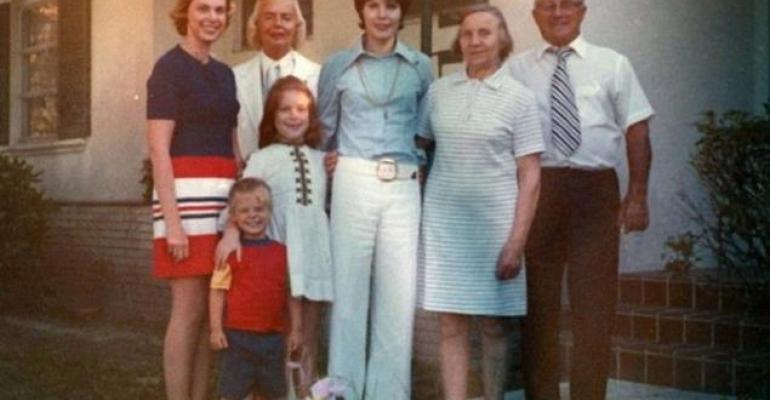Now that we live in a world where same-sex couples can legally marry and, largely, avail themselves of the same rights as everyone else, it's easy to forget some of the creative legal hoops that the gay community used to have to jump through in order to craft rough facsimiles of the bundle of rights traditionally granted by marriage. However, the recent “conflict” in New York over the roughly $25 million estate of model Gigi Carrier Caldwell offers a sobering reminder of just how legally disadvantaged a not-insignificant segment of the community used to be and how unprepared some of our laws still are to deal with the non-traditional families that they created out of necessity.
Gigi, a Manhattan-based model who died intestate in 2009, inherited the majority of her $25 million estate from her lover and, legally, her mother, the songwriter and heiress Shirley Cowell. In a move that was fairly common among same-sex couples at the time, Shirley, 57, adopted her lover Gigi, 41, in 1979. Since gay marriage obviously wasn’t legal yet, such adoptions were intended to give the partners at least some of the rights that a traditionally married couple would have by simply solidifying their status as family.
After Gigi died, her brother, Leonard, petitioned the court claiming that he should receive the balance of the estate as her sole intestate heir. However, and this is where things get complicated, the court denied his request because, under New York law, an adoption legally severs all previous familial ties. So, when Shirley adopted Gigi, Leonard legally ceased to be Gigi’s brother. So, since Gigi died intestate and her only other potential intestate heir, Shirley, predeceased her, we’re faced with the exceedingly rare possibility that the balance of her estate would simply escheat into the state of New York’s coffers.
Leonard died last year and his widow, Claire, has now taken up the fight. She claims and offers ample evidence that Gigi continued to function as part of her birth family for all of her life, even after the adoption. According to Claire, Gigi vacationed and spent holidays with her birth family, and financially supported her birth mother until her death. Gigi even inherited half of her birth mother’s estate. It seems largely uncontested that Gigi would have preferred her millions to go to her birth family rather than the state of New York. However, according to the black letter law, none of this really matters.
Yet, despite the apparent impotence of the plea, all involved in the conflict (except the state of New York, of course, got to get that money) seem to be fairly sympathetic to the issue and cognizant of the fact that the laws governing adoption were clearly not written in anticipation of such a use. Linda Kordes, the attorney appointed by the judge to represent Gigi’s estate recently noted to The New York Daily News that, "Under normal circumstances, such a claim would merit no consideration at all in my opinion. What makes this interesting—but not dispositive—is that Leonard claimed his right to inherit survived the adoption because the basis of the adoption was to create a nontraditional family ... at a time ... when same sex couples could not marry."
Though no decision has come down yet, it’s highly unlikely Claire will receive anything other than the judge’s condolences for what is, pretty incontrovertibly, an injustice. Hopefully, this case will offer a reminder that even in our brave new world of marriage equality for all there are still many people living under makeshift arrangements created under the old paradigm whom the law stil isn’t equipped to properly protect.





